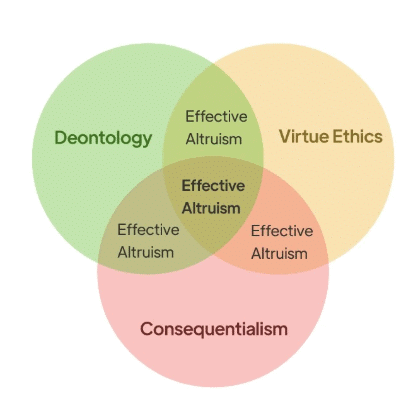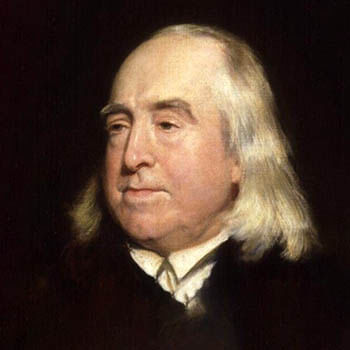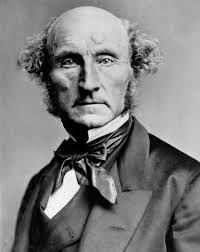Jeremy Bentham's Gross or Quantitative Utilitarianism | UPSC Mains: Ethics, Integrity & Aptitude PDF Download
Normative Ethics Theories
There are three significant theories in normative ethics:
- Virtue Ethics
- Consequentialism (notably Utilitarianism)
- Deontological Ethics (notably Kantianism)

Virtue Ethics
Virtue ethics emphasizes the character of the individual rather than formal rules or the outcomes of actions. It incorporates an understanding of the purpose or meaning of human life. For Plato and Aristotle, this purpose was living in harmony with others, and they identified four Cardinal Virtues:
- Prudence/Wisdom
- Justice
- Fortitude/Courage
- Temperance
Advocates of virtue ethics often claim that virtues possess universal applicability. This ethical framework draws heavily on the approaches to moral thought from ancient and medieval periods. While the roots of the Western tradition are found in the works of Plato and Aristotle, virtues also hold a significant place in Chinese moral philosophy.
Consequentialism
- Consequentialism is an ethical theory commonly associated with the everyday moral reasoning of many non-religious individuals. It judges morality based on the outcomes of actions rather than the actions themselves, focusing on the rightness of the 'end' rather than the morality of the 'means' used. From this perspective, an action is morally right if it leads to a good outcome or consequence.
- Consequentialism advocates for actions that result in the greatest amount of good consequences. A well-known expression of this idea is "the greatest good for the greatest number."
- The most prevalent forms of consequentialism are the various types of utilitarianism, which prioritize actions that maximize happiness.
Consequentialism can be further divided into three categories:
1. Ethical Egoism
From this perspective, an action is morally right if its consequences are more beneficial than harmful, but only for the person performing the action.
2. Ethical Altruism
According to this perspective, an action is morally right if the consequences of that action are more favorable than unfavorable to everyone except the person performing the action.
3. Utilitarianism
- According to this perspective, an action is morally right if its consequences are more favorable than unfavorable to everyone.
- Utilitarianism is the altruistic or universal form of Ethical Hedonism, which argues that pleasure is the highest good and ultimate goal of life. Utilitarianism asserts that the supreme ideal is not individual pleasure but universal happiness. The core principle of Utilitarianism is "the greatest happiness of the greatest number."
- In other words, Utilitarianism holds that the moral value of an action is determined solely by its contribution to overall utility, that is, the happiness or pleasure it brings to all individuals. The more happiness or pleasure generated for more people, the better. This theory is consequentialist, as it judges actions by their outcomes, asserting that the ends justify the means. This stands in contrast to deontological ethics, which deems some actions right or wrong regardless of their consequences.
- Utilitarianism, in normative ethics, originates from the 18th and 19th-century English philosophers and economists, Jeremy Bentham and John Stuart Mill. Bentham advocates for Gross or Quantitative Utilitarianism, while Mill supports Refined or Qualitative Utilitarianism.
Deontological or non-consequentialism Ethics
Deontology focuses on the actions themselves rather than their consequences. It examines whether actions are right or wrong based on their inherent nature, rather than evaluating the outcomes of those actions. According to deontological ethics, certain actions are morally right or wrong regardless of the consequences, and people should act in accordance with these principles.
Jeremy Bentham’s Gross or Quantitative Utilitarianism

- Bentham suggests that the rightness of an action is determined by whether it produces pleasure, while an action is wrong if it results in pain. The value of an action lies in its ability to generate pleasure and prevent pain. According to Bentham, all pleasures are equal, differing only in quantity, not quality. For example, he argues that a simple game like pushpin is just as good as poetry, as long as the amount of pleasure is the same.
- Bentham believes that everyone desires their own happiness, and an individual's happiness is good for that person. Therefore, general happiness is beneficial for all. He asserts that humans are inherently egoistic and selfish, and they can only be altruistic when doing so satisfies their own desires. Thus, Bentham proposes the moral principle of "the greatest happiness of the greatest number," meaning the moral goal is the happiness of the maximum number of people, not just one individual.
Mill's Refined or Qualitative Utilitarianism

Refined or Qualitative Utilitarianism can be summarized as follows:
- The principle of utility, or the greatest happiness principle, is the moral criterion. Actions are considered right if they promote happiness, which is defined as pleasure and the absence of pain.
- Actions are wrong if they lead to unhappiness, which is pain or the lack of pleasure. Pleasure and freedom from pain are the only true ends that are desirable, while things like virtue, health, love of honor, wealth, and power are valued because they contribute to happiness.
- Mill argues that there is a qualitative distinction between pleasures, as well as a quantitative one. Intellectual pleasures, he believes, are of a higher quality than physical pleasures. Mill asserts that people should aim to fulfill higher capacities for satisfaction.
- He also argues that each person desires their own happiness, and that an individual's happiness is beneficial to them. Therefore, general happiness is good for everyone. In this way, Mill bridges the gap between egoism and altruism, emphasizing that the moral goal should be "the greatest happiness of the greatest number."
|
78 videos|139 docs
|
FAQs on Jeremy Bentham's Gross or Quantitative Utilitarianism - UPSC Mains: Ethics, Integrity & Aptitude
| 1. What is the main principle of Bentham's Gross or Quantitative Utilitarianism? |  |
| 2. How does Mill's Refined or Qualitative Utilitarianism differ from Bentham's approach? |  |
| 3. What are the criticisms faced by Bentham's Gross Utilitarianism? |  |
| 4. Can you provide an example of how Mill's Qualitative Utilitarianism might be applied in a real-world scenario? |  |
| 5. In what ways can understanding these utilitarian theories benefit ethical decision-making in public policy? |  |





















